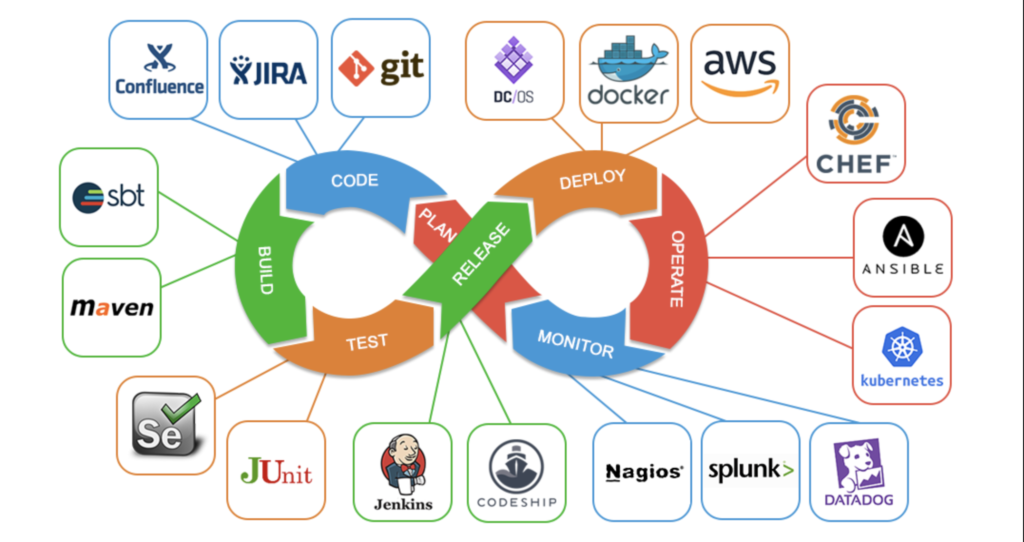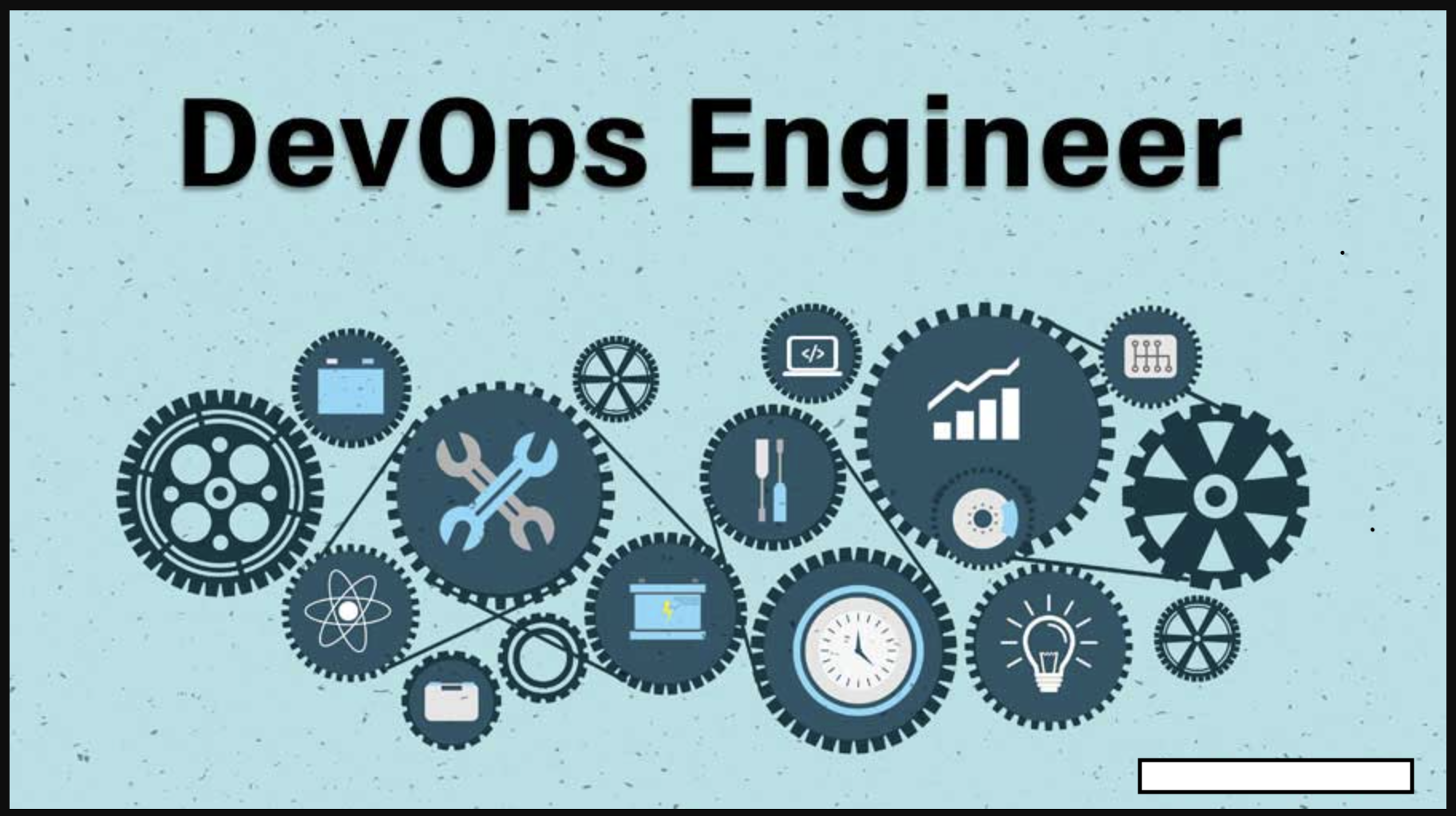DevOps is a rapidly growing field that combines the skills of software development and IT operations. As a DevOps engineer, you will be responsible for designing, implementing, and maintaining the infrastructure that supports software development and deployment. In this guide, we will cover the top 5 Steps to Become a Successful DevOps Engineer.
Table of Contents
5 Steps to Become a Successful DevOps Engineer
Below are 5 easy and best steps you should follow to become a top-notch DevOps engineer and take your career to another level.
Step 1: Understand the basics of software development and IT operations
Before you can become a DevOps engineer, it is important to have a solid understanding of the basics of software development and IT operations. This includes understanding the software development lifecycle (SDLC), version control systems, and the basics of programming languages such as Python and JavaScript. Additionally, it is important to have a basic understanding of IT operations, including server administration, networking, and security.
Step 2: Learn the tools and technologies used in DevOps
DevOps engineers use a wide range of tools and technologies to automate the software development and deployment process. You have to have the right DevOps skills. Some of the most popular tools used in DevOps include:
- Git: A version control system that is widely used in software development.
- Jenkins: An open-source automation server that is used to automate the building, testing, and deployment of software.
- Ansible: An open-source configuration management tool used to automate the provisioning and management of servers.
- Docker: An open-source containerization platform that is used to package and deploy applications.
- Kubernetes: An open-source container orchestration system that is used to manage and scale containerized applications.

Step 3: Gain experience with cloud computing
DevOps engineers often work with cloud computing platforms such as Amazon Web Services (AWS), Microsoft Azure, and Google Cloud Platform (GCP). It is important to have experience with one or more of these platforms as they are widely used in the industry.
Step 4: Participate in online communities
Participating in online communities and forums is a great way to stay up-to-date with the latest trends and technologies in the DevOps field. Some popular online communities include the DevOps Reddit, the DevOps LinkedIn group, and the DevOps Twitter community.
Step 5: Get certified
Getting certified in DevOps can help you stand out from other candidates and demonstrate your knowledge and skills. Some popular DevOps certifications include the AWS Certified DevOps Engineer, the Azure DevOps Engineer Expert, and the Google Cloud Professional DevOps Engineer.
Fiannly: Look for job opportunities
Once you have gained the necessary skills and experience, it is time to start looking for job opportunities. Some popular job titles for DevOps engineers include:
- DevOps Engineer
- Cloud Engineer
- Release Engineer
- Infrastructure Engineer
- Configuration Management Engineer
In conclusion, becoming a DevOps engineer requires a combination of skills in software development and IT operations, as well as experience with the tools and technologies used in the DevOps field. To succeed in this role, it is important to have a solid understanding of the basics of software development and IT operations.
Learn the tools and technologies used in DevOps, gain experience with cloud computing, participate in online communities, get certified, and look for job opportunities. With the right skills and experience, you can become a successful DevOps engineer and make a positive impact on the software development and deployment process. In the upcoming years, DevOps trends are only going to move up.
Also check: Best Guide on How to Become a Data Scientist
Opportunities as a DevOps Engineer
As a DevOps Engineer, there are many opportunities available to you in various industries and roles. Some examples of job titles and industries that often hire DevOps engineers include:
- Software development companies: These companies often require DevOps engineers to help design, implement, and maintain the infrastructure that supports software development and deployment.
- IT consulting firms: These firms often hire DevOps engineers to work on projects for their clients, helping them to design and implement infrastructure and automation solutions.
- Startups: Startups often require DevOps engineers to help them quickly and efficiently scale their infrastructure and software development processes.
- E-commerce and online retail companies: These companies often require DevOps engineers to help them design, implement, and maintain the infrastructure that supports their online storefronts and back-end systems.
- Healthcare, finance and banking, insurance, government, and other industries: Many of these industries are now adopting DevOps practices and hiring engineers to help them with their digital transformation.
In addition to these industries, DevOps engineers can also find opportunities in different roles such as:
- Senior DevOps Engineer: A Senior DevOps Engineer is typically responsible for designing and implementing automation solutions, as well as leading teams of DevOps engineers.
- Lead DevOps Engineer: A Lead DevOps Engineer is typically responsible for leading the design and implementation of automation solutions, and for mentoring and training other DevOps engineers.
- DevOps Manager: A DevOps Manager is typically responsible for leading the overall DevOps strategy and implementation for an organization, managing teams of DevOps engineers, and collaborating with other departments such as development and IT operations.
As you can see, there are many opportunities available for DevOps engineers in various industries and roles, and the field is continuously growing. With the right skills and experience, you can find a fulfilling and challenging career as a DevOps Engineer.
Average Salary of DevOps Engineers
The average salary for a DevOps Engineer varies depending on factors such as location, experience, and the specific industry or company. According to data from Glassdoor, the average salary for a DevOps Engineer in the United States is around $115,000 per year. However, this can range from around $90,000 to $150,000 per year.
It’s also worth noting that the salary for DevOps engineers can also vary depending on the location, with some cities and states offering higher salaries than others. For example, in San Francisco, the average salary for a DevOps Engineer is around $140,000 per year, while in New York City, the average salary is around $130,000 per year.
Additionally, the experience of a DevOps Engineer also affects the salary, entry-level DevOps Engineers typically earn less than those who have more experience. Also, experience with specific tools and technologies, certifications, and other qualifications may also affect the salary.
It’s important to note that these are just averages and that the salary for a DevOps Engineer can vary widely depending on the specific company, industry, and location. It’s always a good idea to research the salary for a DevOps Engineer in your specific area and industry before applying for a job.


1 thought on “5 Steps to Become a Successful DevOps Engineer”